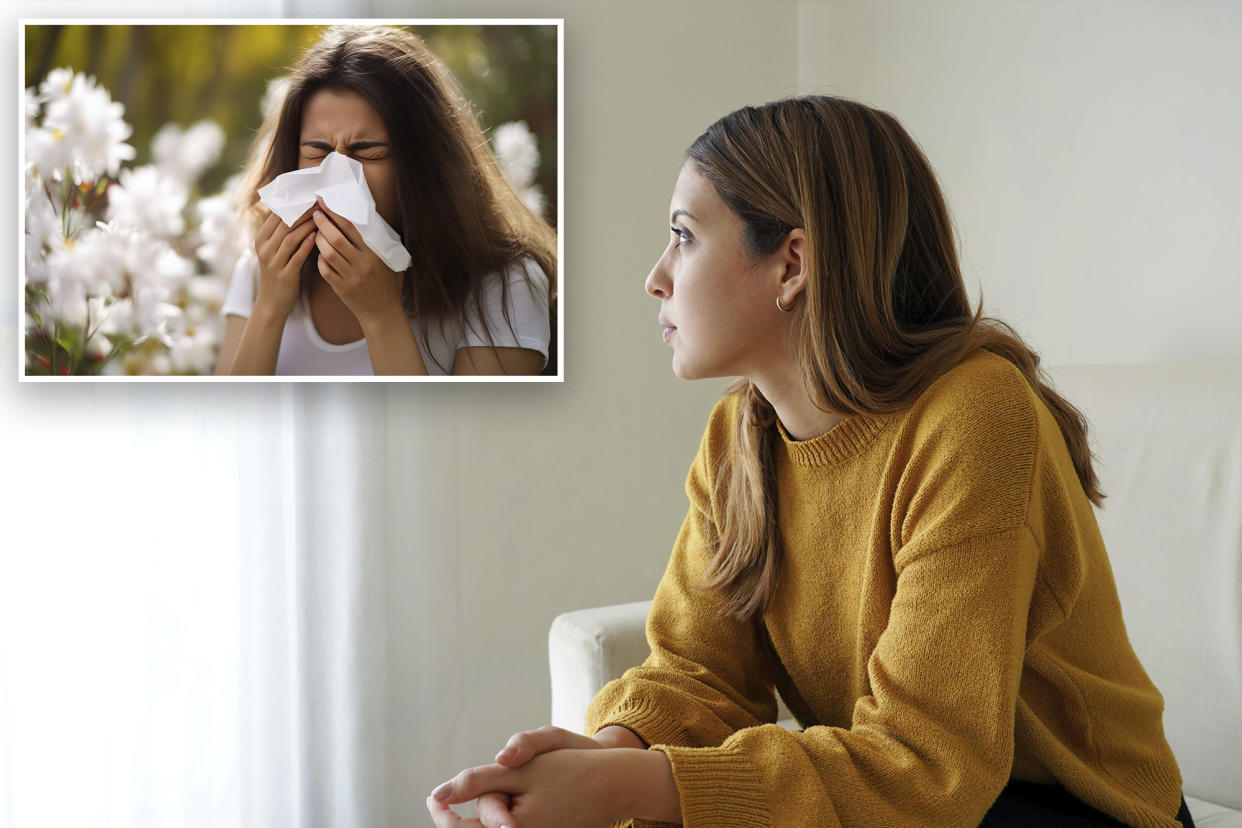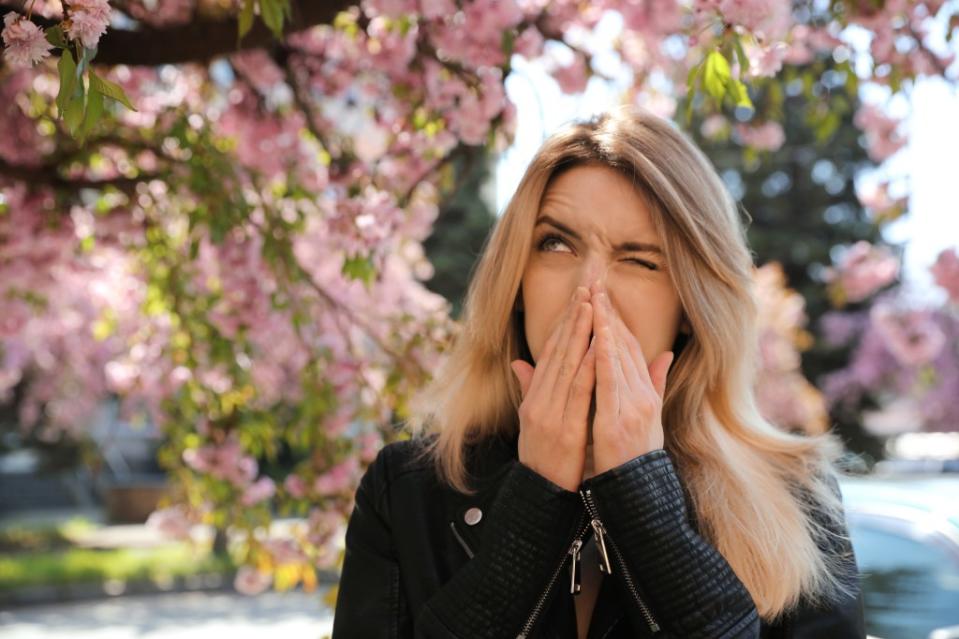Spring allergies linked to depression, suicide — expert blames ‘pollen bombs’ for seasonal sads

Call it the bloom-bonic plague.
Spring is here — so why does your body still think it’s winter?
You’re not alone, say the experts — nicer weather and late sunsets are of no comfort to the more than a million American adults estimated to be suffering from the springtime version of seasonal affective disorder, or SAD.

More closely associated with the beginning of winter, SAD can occur during any seasonal transition. Those afflicted can feel sadness or lethargy, all the way until the new season begins in earnest.
And there’s one, very real culprit for springtime SAD, says Dr. Supria Gill, a behavioral psychologist at Kaiser Permanente in California — your allergies.
Okay, two culprits — the other one being FOMO, or fear of missing out, as the world picks up the pace after its winter hibernation, the Daily Mail reported.
These two issues in tandem could be why suicide rates tend to spike in the spring and summer, rather than during the darkest part of the year, when everyone assumes they’d be at their highest. (They’re not.)
“It can be pretty surprising, especially because in the winter time, we have shorter days, less sunlight, and that is one of the big contributors to seasonal affective disorder in the winter,” Dr Gill told KCRA 3.

Spring SAD sufferers may experience a loss of interest in doing the things you normally love, withdrawal from social situations, changes in appetite, lack of focus, sleepiness and feeling sad throughout your day.
‘Seeing other people out and about doing things can really worsen…feelings of depression, and so that social comparison can be a factor,’ Dr. Gill said.
Approximately 5% of American adults — nearly 13 million of us — battle SAD for up to 40 percent of the year, according to the American Psychiatric Association (APA).

Of that 13 million, 10 percent get hit by the springtime heebie-jeebies.
The problem may also be worsening as springtime starts earlier and lasts longer, due to changes in the climate — some sufferers simply may not be ready to get outdoors, or spend more time socializing. This can lead to inner turmoil.
“‘Many people think that suicide rates, understandably, would be higher in the winter,” Dr. Gill said.

“December is actually the lowest in terms of suicide rates, while late spring and early summer have the highest rates of completion, so we know that people are struggling with their emotions at this time.”
There were 4,375 suicides in April 2022, compared to 3,960 in December 2022, according to provisional CDC data.
How to beat nature at its twisted game? Focus on “the big three,” Dr. Gill recommends: Exercise, sleep, and diet.
A brief walk outdoors, she said, can be as effective for mood enhancement as antidepressant medications.
Dr. Gill also recommended considering an anti-inflammatory diet, as inflammation has been linked to mood. Foods that can help keep you healthy and happy will be rich in Vitamin C and Omega 3s — like salmon, avocados and fresh citrus.

